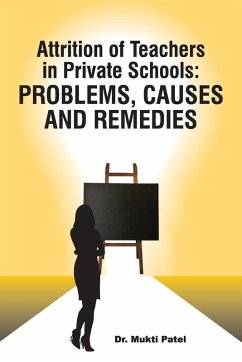
First Language Attrition

PAYBACK Punkte
57 °P sammeln!
First Language Attrition examines linguistic aspects of the attrition or loss of first language abilities in bilinguals through a collection of studies in various language groups. The phenomena of attrition are examined at both the individual bilingual and societal levels. This volume is divided into three sections: Part I surveys different aspects of existing empirical evidence to arrive at theoretical generalisations about language attrition. Part II comprises group studies examining attrition in societal bilingualism or in groups of bilingual individuals. Part III contains individual case s...
First Language Attrition examines linguistic aspects of the attrition or loss of first language abilities in bilinguals through a collection of studies in various language groups. The phenomena of attrition are examined at both the individual bilingual and societal levels. This volume is divided into three sections: Part I surveys different aspects of existing empirical evidence to arrive at theoretical generalisations about language attrition. Part II comprises group studies examining attrition in societal bilingualism or in groups of bilingual individuals. Part III contains individual case studies of bilingual children and adults. The research reported in this text investigates first language attrition in a variety of linguistic areas such as syntax, morphology, semantics, phonology and lexicon with the following first languages: Spanish, German, Hebrew, Dyirbal, English, Breton, Dutch, Hungarian, Russian, French and Pennsylvania German. Although there is growing interest in bilingualism, this is the first work to examine the effects of the acquisition of a second language on linguistic abilities in the first language.
Table of contents:
Part I. Survey Studies: 1. The study of first language attrition: an overview Herbert W. Seliger and Robert M. Vago; 2. First language attrition and the parameter-setting model Michael Sharwood Smith and Paul Van Buren; 3. Recapitulation, regression and language loss Kees de Bot and Bert Weltens; 4. First language loss in bilingual and polyglot aphasics Loraine K. Obler and Nancy Mahecha; 5. A cross-linguistic study of language contact and language attrition Julianne Maher; Part II. Group Studies: 6. L1 loss in an L2-environment: Dutch immigrants in France Kees de Bot, Paul Gommans and Carola Rossing; 7. The sociolinguistic and patholinguistic attrition of Breton phonology, morphology, and morphonology Wolfgang U. Dressler; 8. Language attrition in Boumaa Fijian and Dyirbal Annette Schmit; 9. Pennsylvania German: convergence and change as strategies of discourse Marion Lois Huffines; 10. Lexical retrieval difficulties in adult language attrition Elite Olshtain and Margaret Barzilay; 11. Spanish language attrition in a contact situation with English Carmen Silva-Corvalan; Part III. Case Studies: 12. Morphological disintegration and reconstruction in first language attrition Dorit Kaufman and Mark Aronoff; 13. Assessing first language vulnerability to attrition Evelyn Altenberg; 14. Compensatory strategies of child first language attrition Donna Turian and Evelyn Altenberg; 15. Language attrition, reduced redundancy and creativity Herbert W. Seliger; 16. Paradigmatic regularity in first language attrition Robert M. Vago.
First Language Attrition examines linguistic aspects of the attrition or loss of first language abilities in bilinguals through a collection of studies in various language groups. This is the first work to consider the effects of the acquisition of a second language on linguistic abilities in the first language.
Examines linguistic aspects of the attrition or loss of first language abilities in bilinguals.
Table of contents:
Part I. Survey Studies: 1. The study of first language attrition: an overview Herbert W. Seliger and Robert M. Vago; 2. First language attrition and the parameter-setting model Michael Sharwood Smith and Paul Van Buren; 3. Recapitulation, regression and language loss Kees de Bot and Bert Weltens; 4. First language loss in bilingual and polyglot aphasics Loraine K. Obler and Nancy Mahecha; 5. A cross-linguistic study of language contact and language attrition Julianne Maher; Part II. Group Studies: 6. L1 loss in an L2-environment: Dutch immigrants in France Kees de Bot, Paul Gommans and Carola Rossing; 7. The sociolinguistic and patholinguistic attrition of Breton phonology, morphology, and morphonology Wolfgang U. Dressler; 8. Language attrition in Boumaa Fijian and Dyirbal Annette Schmit; 9. Pennsylvania German: convergence and change as strategies of discourse Marion Lois Huffines; 10. Lexical retrieval difficulties in adult language attrition Elite Olshtain and Margaret Barzilay; 11. Spanish language attrition in a contact situation with English Carmen Silva-Corvalan; Part III. Case Studies: 12. Morphological disintegration and reconstruction in first language attrition Dorit Kaufman and Mark Aronoff; 13. Assessing first language vulnerability to attrition Evelyn Altenberg; 14. Compensatory strategies of child first language attrition Donna Turian and Evelyn Altenberg; 15. Language attrition, reduced redundancy and creativity Herbert W. Seliger; 16. Paradigmatic regularity in first language attrition Robert M. Vago.
First Language Attrition examines linguistic aspects of the attrition or loss of first language abilities in bilinguals through a collection of studies in various language groups. This is the first work to consider the effects of the acquisition of a second language on linguistic abilities in the first language.
Examines linguistic aspects of the attrition or loss of first language abilities in bilinguals.














